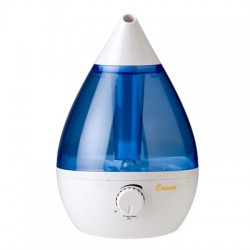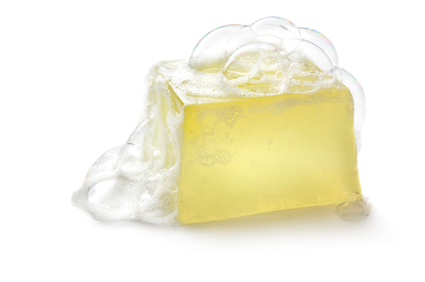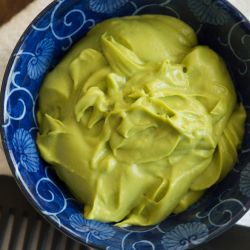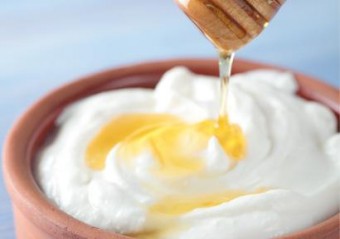Give Dry Winter Skin The Boot
January 9, 2014 1:12 amDry skin is unpleasant enough, but harsh winter weather can really ramp things up and make it almost unbearable. Millions of people struggle with dry skin in the winter, so I thought with this post we’d discuss why your skin gets drier in the winter and learn a few simple ways to help hydrate it and keep it from being a real problem.
Your skin is so much more than a covering for your bones. At a basic level it acts like a shield against the environment, protecting you from a multitude of really bad things, such as bacteria, disease, and the sun’s harmful ultraviolet rays. Ideally, our skin gets moisture saturated from our sweat glands and the tissues that sit beneath the skin. The oil produced by the skin’s sebaceous glands finishes everything off by holding onto that moisture. When your body has trouble keeping in the water and oil that it needs to stay moist, you end up with dry skin.
There are lots of reasons why skin loses moisture. Sometimes it’s inherited, but as we get older our skin tends to produce less oil, which means it doesn’t hold onto hydration like it once could. Besides genetics and getting older, there are also environmental factors as to why skin gets so dry. Let’s take a look at those reasons and how see how you can combat them during the winter season.
First up:
Low humidity:
Old Man Winter may be the one to blame for some climate-related dry skin problems, but he’s not the only culprit. Anywhere you encounter low humidity, you’ll encounter dry skin. Heating and air conditioning both can dry out your skin.
Adding a humidifier to your bedroom can go a long way to keeping your skin hydrated and healthy. You can put a humidifier in any room on the house, but by putting it in the bedroom you’re guaranteed to get a full 8 hours worth of hydrated air.
Next up:
Water, strangely enough.

Too much water, especially from hot showers, saunas, baths, or hot tubs can cause your skin major problems. The more you heat up the skin, wet it down, and towel it off, the more oils you remove that help hold in moisture. So, during the winter it’s best to limit hot showers and avoid hot tubs and saunas completely. I know, I know…a hot shower in the winter feels really good, but in reality it removes quite a bit of much needed oil from your skin.
Going hand in hand with bathing is moisturizing. Moisturizers add back oil to your skin and help retain water. For moisturizers to work best you need to apply them within three minutes after stepping out of the bath or shower. For daily use I recommend using a rich oil-based moisturizer. I like products that contain jojoba oil, shea butter, or sunflower seed oil such as L’Occitane’s Shea Protective Cream and Alba Botanica Very Emollient. Both contain rich, creamy oil to help hold in moisture and, as a bonus, both contain an SPF.
Next up:
Soap, in particular the wrong kind. Harsh detergents in soaps can give you a real case of itchy, scaly skin. The trick is to choose milder soaps such as the glycerin and oil based soaps available at natural food stores. Do your best to avoid soaps that contain sodium laurel sulfate, an additive that allows them foam up better, but actually act as an irritant for a lot of people, especially in the winter. Personally, I’ll go a step further and recommend avoiding any ingredient that sounds like sodium laurel sulfate, such as sodium laureth sulfate, ammonium lauryl sulfate etc.
And lastly, up your personal water intake. Diet is such an important part of skin care the whole year through, but during the winter you need to be a little more mindful of how much water you’re taking in. If you increase the water you’re drinking and boost the amount of fresh fruit and vegetables you’re eating your skin’s hydration level will naturally rise.
Employ even one of these tips and you’ll notice a difference in your skin – use them all and well, this could be the best winter your skin has seen in a LONG time!
Now my little gift to you: here are a couple of very easy, naturally hydrating masks you can make using products you most likely have in your kitchen right now. Enjoy!
Avocado, Honey, and Aloe Vera Mask
Avocados are super rich in essential vitamins that have the ability to deeply hydrate skin, such as Vitamin E. Honey is a natural antibacterial that helps minimize the bacteria thriving inside your pores. Aloe Vera is renowned for its calming and healing properties. Together they make this a great mask for wind-burned or sunburned skin.
Ingredients
1 ripe avocado
2 tbsp aloe vera gel
2 tbsp honey
1 teaspoon extra virgin olive oil
3 tbsp dry oatmeal
Cut up the avocado into pieces, then mash it in a bowl with a fork, creating a creamy, smooth Stir in the honey, Aloe Vera and olive oil.
Add the oatmeal and mix well, into a paste.
Massage the mask onto your face using your fingertips and let it set for 15 minutes.
Wash off mask with a wet washcloth steamed in the microwave for 60 seconds (careful that it’s not too hot).
Repeat weekly for best results.
Yogurt and Honey Face Mask for Sensitive Skin
This mask is great for soothing winter chapped, sunburned or otherwise sensitive skin.
Ingredients:
1 cup thick Greek yogurt
1/4 cup oatmeal
2 tablespoons of honey.
Mix the ingredients together.
Apply to the skin for 10-15 minutes.
Wash off mask with a wet washcloth steamed in the microwave for 60 seconds (careful that it’s not too hot).
Repeat weekly for best results.
Extra tip: For oily skin, add 5 drops of lemon or lime juice.





Very informative article. Thanks for sharing! Will try the masks!